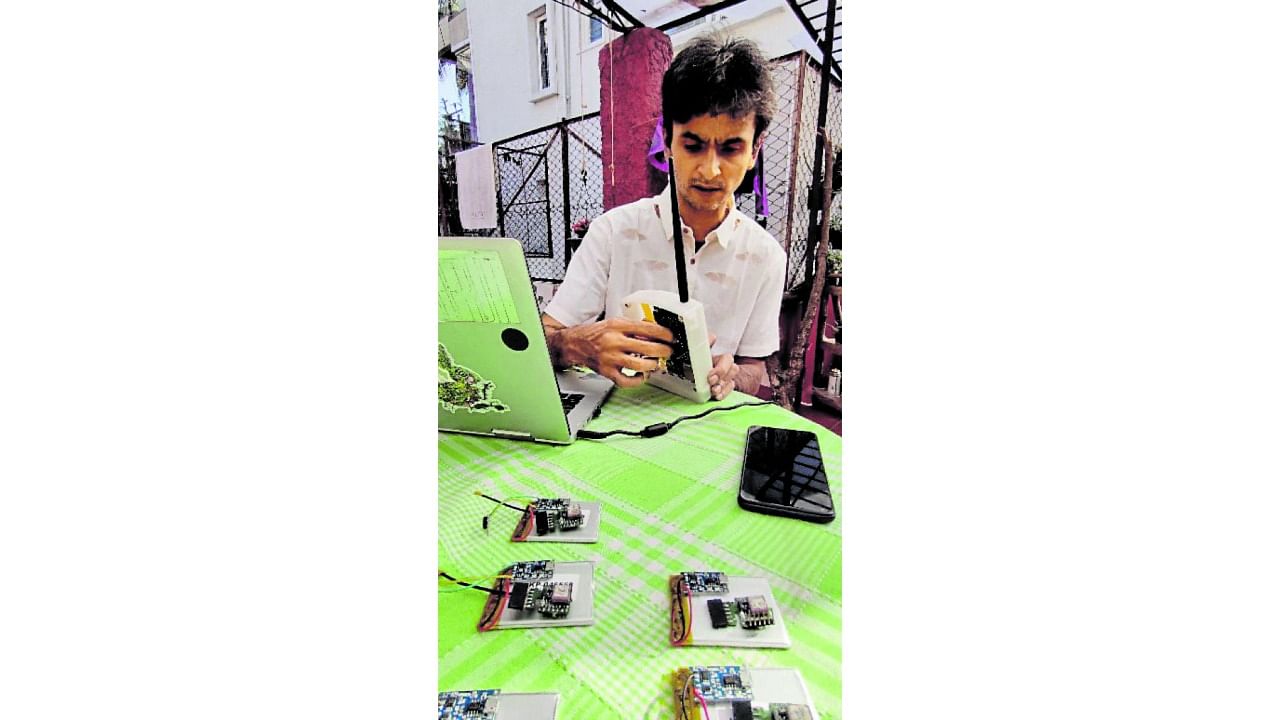
The forest department’s expenditure to radio collar wild animals could soon come down drastically, as it has started experimenting with surveillance devices manufactured in Bengaluru.
Till recently, India used to import these radio collars and telemetric devices at exorbitant prices.
For example, a radio collar used for tagging elephants would have cost the department anywhere between Rs 2.5 lakh and Rs 4 lakh.
However, the 'desi' product that is being manufactured by two Bengaluru-based startups are available at Rs 25,000 to Rs 40,000.
The products by Arcturus. Inc run by Abhijit Kumar N (31) and Traktfrc operated by Ishaan Raghunandan (33), which manufacture radio collars, GPS collars and other surveillance devices, will not only help mitigate human-animal conflict, but also aid researchers in understanding a species better at a much affordable price.
Abhijit’s products are currently being tested at Kali Tiger Reserve (KTR) in Karnataka, Bikaner (Rajasthan), Alappuzha (Kerala) Mahabalipuram (Tamil Nadu) and Puducherry.
He, in collaboration with the forest department of these states, has radio-collared feral dogs, foxes, jackals, jungle cats and elephants.
He is awaiting permission to tag tigers, leopards and hornbills.
Abhijit has also radio-collared turtles in Tamil Nadu for study purposes. Soon, the devices will be tested on turtles in Lakshadweep.
Ishaan’s tracking devices are being deployed and tested in the Amazon rain forest on primates such as Paca, emperor tamarin and carnivorous animals like Ocelots and Taira.
Both Abhijit and Ishaan are working on GSM and LORA (long-range radio) technology-based customised devices that can be used on a variety of animals in diverse territories.
“I wrote codes and manufactured collars from scratch based on field experience. All my prototypes are on a par with German-based E-Obs collars that are considered a gold standard in the sector,” said Abhijit.
At KTR, the forest department and Abhijit are working to create a 'bio-mesh' with LoRa networking that could send alerts of tagged wild animals venturing into human habitations.
Breaking virus spread
They are also planning to work on feral dogs to understand how rabies is transmitted to wild animals from stray dogs.
“The study could help in breaking virus transmission,” he said.
Tiniest of animals
Ishaan, who is working on advanced technology in radio collaring, is coming up with products that can be used on the tiniest of animals.
“Most of the time, we lose an animal while tranquilizing or capturing it for tagging. To prevent this, we have come up with sensor-based trapping. The entire process of capturing, tranquilizing, tagging, monitoring of its vital parameters and releasing of animal can be completed in 30-40 minutes,” he said.
Ishaan is also working on 'drop-off' tags that could detach from the animals once the researcher is done with his/her study.
He said getting permission from the forest departments in India for study and tagging was tough compared to Amazon and Africa.
“The officials there understand the importance of using advanced technology and artificial intelligence to study lesser-known species,” he said.
Speaking to DH, principal chief conservator of forests (wildlife) Vijaykumar Gogi said, "All these years, we were importing radio/telemetry devices as per the standards set by the Wildlife Institute of India, due to lack of availability in India. If products by local companies demonstrate their capabilities in tracking and receiving data like the imported ones, we are more than willing to experiment with them in our forests,” he said.